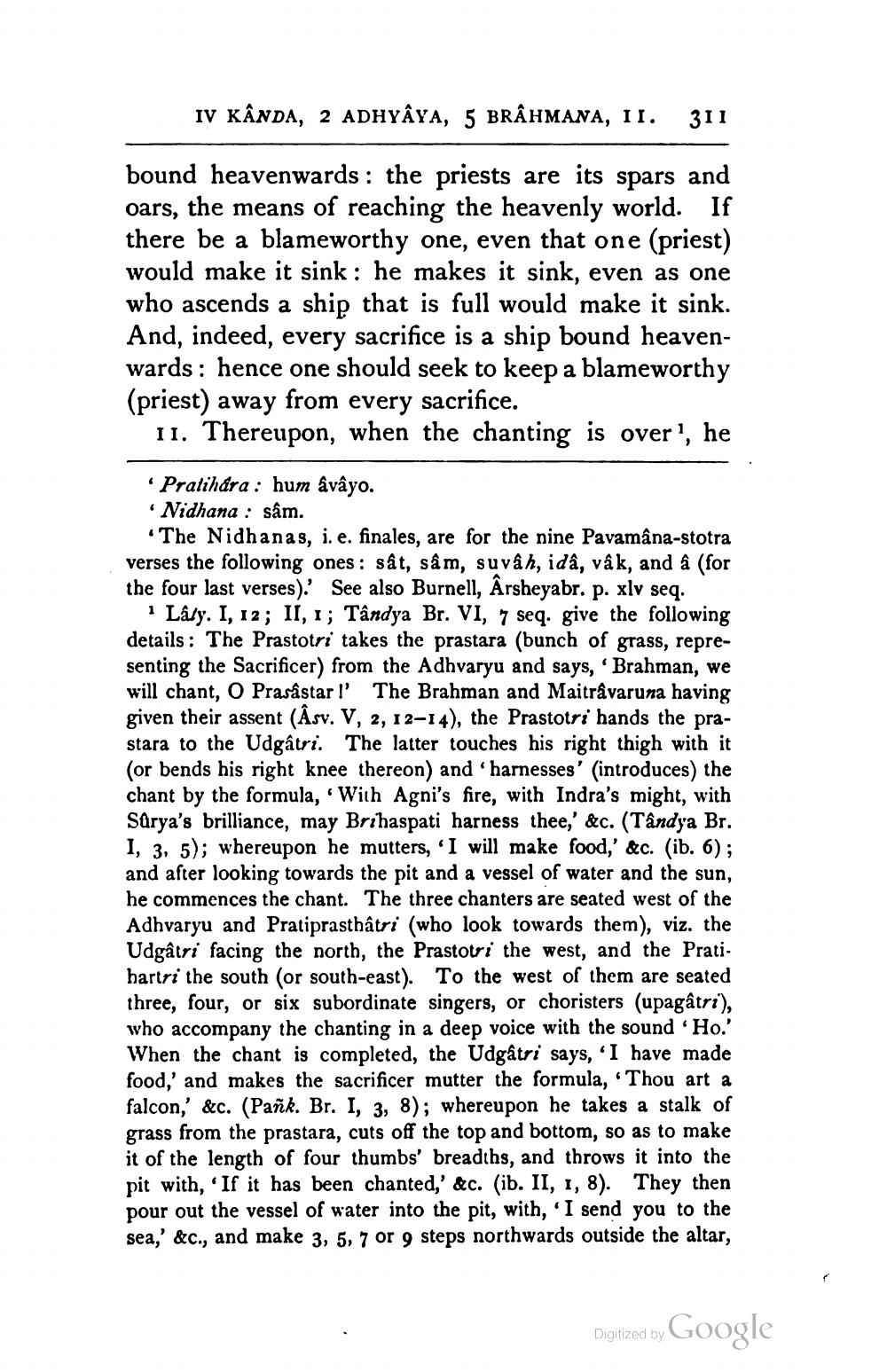________________
IV KÂNDA, 2 ADHYAYA, 5 BRÂHMANA, II. 311
bound heavenwards: the priests are its spars and oars, the means of reaching the heavenly world. If there be a blameworthy one, even that one (priest) would make it sink : he makes it sink, even as one who ascends a ship that is full would make it sink. And, indeed, every sacrifice is a ship bound heavenwards : hence one should seek to keep a blameworthy (priest) away from every sacrifice.
11. Thereupon, when the chanting is over, he
Pralihdra : hum avâyo. · Nidhana : sâm.
• The Nidhanas, i. e. finales, are for the nine Pavamâna-stotra verses the following ones: sât, sâm, suvah, ida, vâk, and a (for the four last verses). See also Burnell, Arsheyabr. p. xlv seq.
Láty. I, 12; II, 1; Tândya Br. VI, 7 seq. give the following details : The Prastotri takes the prastara (bunch of grass, representing the Sacrificer) from the Adhvaryu and says, 'Brahman, we will chant, О Prasastar!' The Brahman and Maiträvaruna having given their assent (Åsv. V, 2, 12-14), the Prastotri hands the prastara to the Udgâtri. The latter touches his right thigh with it (or bends his right knee thereon) and harnesses' (introduces) the chant by the formula, .With Agni's fire, with Indra's might, with Sarya's brilliance, may Brihaspati harness thee,' &c. (Tândya Br. 1, 3, 5); whereupon he mutters, I will make food,' &c. (ib. 6); and after looking towards the pit and a vessel of water and the sun, he commences the chant. The three chanters are seated west of the Adhvaryu and Pratiprasthâtri (who look towards them), viz. the Udgâtri facing the north, the Prastotri the west, and the Pratihartri the south (or south-east). To the west of them are seated three, four, or six subordinate singers, or choristers (upagâtri), who accompany the chanting in a deep voice with the sound 'Ho.' When the chant is completed, the Udgâtri says, 'I have made food,' and makes the sacrificer mutter the formula, Thou art a falcon,' &c. (Pañk. Br. I, 3, 8); whereupon he takes a stalk of grass from the prastara, cuts off the top and bottom, so as to make it of the length of four thumbs' breadths, and throws it into the pit with, 'If it has been chanted,' &c. (ib. II, 1, 8). They then pour out the vessel of water into the pit, with, I send you to the sea,' &c., and make 3, 5, 7 or 9 steps northwards outside the altar,
Digitized by Google




